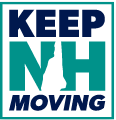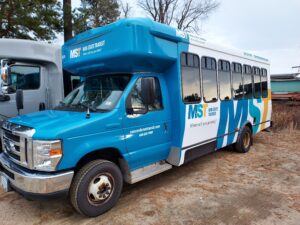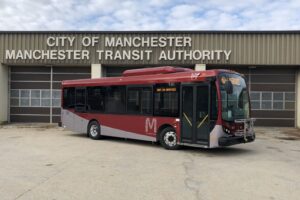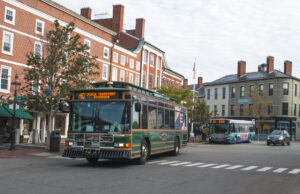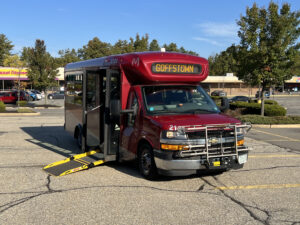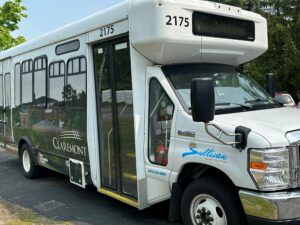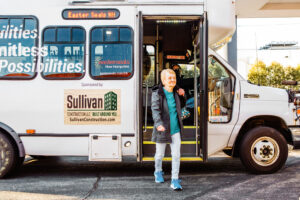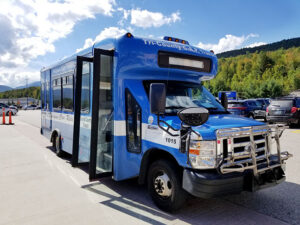Purpose
Buses play a crucial role in public or community transportation systems, serving diverse purposes that contribute to the efficiency, accessibility, and sustainability of urban and regional mobility. Buses provide cost-effective transportation connecting people to jobs, goods, services and recreation while making communities more accessible, livable, and sustainable.
Bus service takes many different forms. The list below will give you a general understanding of the purpose of each type so you can better find the service you need. Users are advised that not all the services defined below operate in every community.
- First, What is a bus? A bus can take many different forms. The big yellow school bus probably comes immediately to mind, but there are buses of all sizes, colors and purposes operating in New Hampshire. There are the large buses, smaller buses often called cut-aways, coach/motorcoach bus, shuttle buses, and trolleys and each type can have additional equipment like floors that lower at stops or wheelchair lifts.
- Fixed-route Service: Buses run on regular, scheduled routes with fixed stops and no deviation. Typically, fixed-route service is characterized by printed schedules or timetables, designated bus stops where passengers board and alight and the use of larger transit vehicles.
- Demand Response: Is a service where trips are scheduled in advance by request from a user or his/her agent. This service is not part of a “Fixed-Route” system. Sometimes “Demand Response” is referred to as “Dial-a-Ride” because it requires a user to call or use a booking application to schedule a trip in advance. Users are advised that this is not the same as an “On Demand” or “Ride Hailing” service like taxis, Uber, and Lyft which will generally dispatch a vehicle right after a user has requested a trip.
- Flex-route or Deviated Fixed-route Service: Is a combination of Fixed-route and Demand Response services. With this type of service, a bus or van stops at fixed points and keeps to a timetable but can deviate its course between two stops to go to a specific location for a pre-scheduled request. Deviated fix route service is often used to provide accessibility to people with disabilities. Users of this service are advised to contact their local transit provider to determine if this option exists in their region and should not assume a Fixed-Route service will allow for a deviation.
- Intercity Bus transportation: Long-distance service provided between cities & towns, often as part of a large network of intercity bus operators. Both express and local bus service may be provided. Concord Coach and C&J Bus Lines are examples of regional, intercity bus lines that also cross state lines. Greyhound is an example of a national intercity bus network that has established routes throughout the country.
- Charter Service: Is generally an exclusive service provided to a group for a fee. For example, a couple may hire a charter service to provide group transportation for their wedding. This type of service is not considered part of a public transportation system because it is not open to the public. Sometimes, a Demand Response service may also include certain trips that are exclusive, for a group, from a single origin to a single destination, and that reoccur on a less-frequent basis than once per month, but they are not considered charter services so long as these trips are arranged and operated under the same terms and conditions as the Demand Response system for individuals.
- School Bus Service: Is a system of buses and routes used exclusively for student transportation and is not considered part of the public transportation system. While some transit agencies may provide school bus services, the funding, contracts, and requirements are separate from public transportation funds and are typically under the control of State Departments of Education and local school departments.
